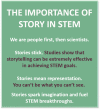Removing systemic barriers to equity, diversity, and inclusion: Report of the 2019 Plant Science Research Network workshop "Inclusivity in the Plant Sciences"
- PMID: 36035898
- PMCID: PMC9399870
- DOI: 10.1002/pld3.432
Removing systemic barriers to equity, diversity, and inclusion: Report of the 2019 Plant Science Research Network workshop "Inclusivity in the Plant Sciences"
Abstract
A future in which scientific discoveries are valued and trusted by the general public cannot be achieved without greater inclusion and participation of diverse communities. To envision a path towards this future, in January 2019 a diverse group of researchers, educators, students, and administrators gathered to hear and share personal perspectives on equity, diversity, and inclusion (EDI) in the plant sciences. From these broad perspectives, the group developed strategies and identified tactics to facilitate and support EDI within and beyond the plant science community. The workshop leveraged scenario planning and the richness of its participants to develop recommendations aimed at promoting systemic change at the institutional level through the actions of scientific societies, universities, and individuals and through new funding models to support research and training. While these initiatives were formulated specifically for the plant science community, they can also serve as a model to advance EDI in other disciplines. The proposed actions are thematically broad, integrating into discovery, applied and translational science, requiring and embracing multidisciplinarity, and giving voice to previously unheard perspectives. We offer a vision of barrier-free access to participation in science, and a plant science community that reflects the diversity of our rapidly changing nation, and supports and invests in the training and well-being of all its members. The relevance and robustness of our recommendations has been tested by dramatic and global events since the workshop. The time to act upon them is now.
Keywords: diversity; mentoring; science; sponsorship; storytelling; well‐being.
© 2022 The Authors. Plant Direct published by American Society of Plant Biologists and the Society for Experimental Biology and John Wiley & Sons Ltd.
Conflict of interest statement
The Authors did not report any conflict of interest.
Figures



References
-
- Apuzzo M, & Kirkpatrick DD. (2020). Covid‐19 changed how the world does science, together. The New York Times. https://www.nytimes.com/2020/04/01/world/europe/coronavirus-science-rese...
-
- BBC News . (2021). George Floyd: Timeline of black deaths and protests. BBC News. https://www.bbc.com/news/world-us-canada-52905408
-
- Beattie, P. N. , Loizzo, J. , Kent, K. , Krebs, C. L. , Suits, T. , & Bunch, J. C. (2020). Leveraging Skype in the classroom for science communication: A streaming science ‐ scientist online approach. Journal of Applied Communications, 104(3), 1–17. 10.4148/1051-0834.2328 - DOI
-
- Botanical Society of America . (n.d.). BSA's 2020 response to racism against our Black colleagues and community. American Journal of Botany. PMID: https://cms.botany.org/home/resources/2020-response-to-racism.html#:~:te...
-
- Buchanan L, Bui Q, & Patel JK. (2020). Black lives matter may be the largest movement in U.S. history. https://www.nytimes.com/interactive/2020/07/03/us/george-floyd-protests-...
LinkOut - more resources
Full Text Sources

